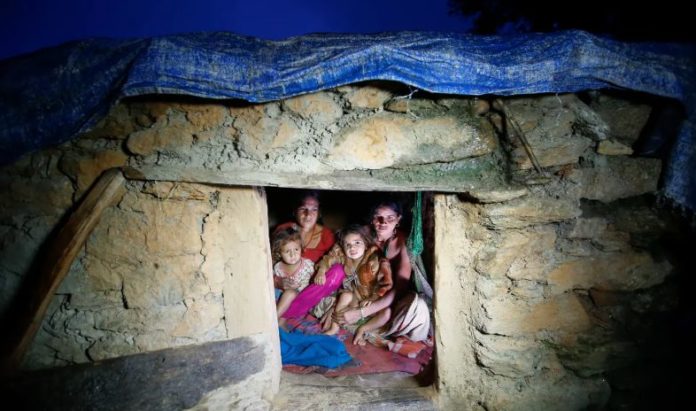In western Nepal, women and girls are considered to be unclean during their bleeding and are therefore required to spend a few days away from home and farm each month in a so-called menstrual hut. This regularly has tragic consequences.
The 21-year-old Nepalese Parwati Budha Rawat was newly married, very healthy and, according to her relatives, especially fun-loving. Eighteen months after her wedding, the farmer hoped to get pregnant soon. Instead, she suffocated in early December in a windowless smash in the mountains of Nepal. A few days later, her brother-in-law was arrested: while Rawat’s husband was abroad as a guest worker, his brother should have taken care of the young woman. He forced her to follow the controversial Chhaupadi custom. According to a superstition rooted in Hinduism, women and girls are considered unclean during their bleeding. That is why millions of Nepalese women are encouraged to spend a few days each month away from home and in a so-called menstrual hut. Rawat had already spent three nights in a mud hut at minus ten degrees at the time of her death. Not to freeze, she lit a fire. The smoke cost her her life.
According to a government, survey conducted a few years ago, 19 per cent of women in Nepal nearly three million women, practice Chhaupadi. In the west of the country, where the majority of Hindus live, up to 50 per cent of all women and girls regularly withdraw from everyday life, often under pressure from their families. The background is the conviction that the contact of a menstruating woman brings disease to humans and animals and causes the milk to dry up in cows.
Rawat was far from being the first victim of superstition. Deaths keep occurring, often from smoke poisoning. The Supreme Court in Kathmandu banned the practice as early as 2005. However, the judicial authorities were in no hurry to enforce the verdict. Only in 2017 was Chhaupadi punished. Rawat’s brother-in-law is now the first Nepalese to be arrested for urging a family member to stay in a menstrual hut. The punishment that awaits him is laughably mild: a maximum of three months in prison and a fine of the equivalent of 30 francs.
Rawat was far from the first victim of superstition. Time and again there are deaths, often from smoke poisoning. As early as 2005, the Supreme Court in Kathmandu banned the custom. But the judicial authorities were not in a hurry to enforce the verdict. It was not until 2017 that Chhaupadi was criminalised. Rawat’s brother-in-law is now the first Nepalese to be arrested for urging a family member to stay in a menstrual hut. The sentence that awaits him is laughably mild: a maximum of three months in prison and a fine of $ 30.
